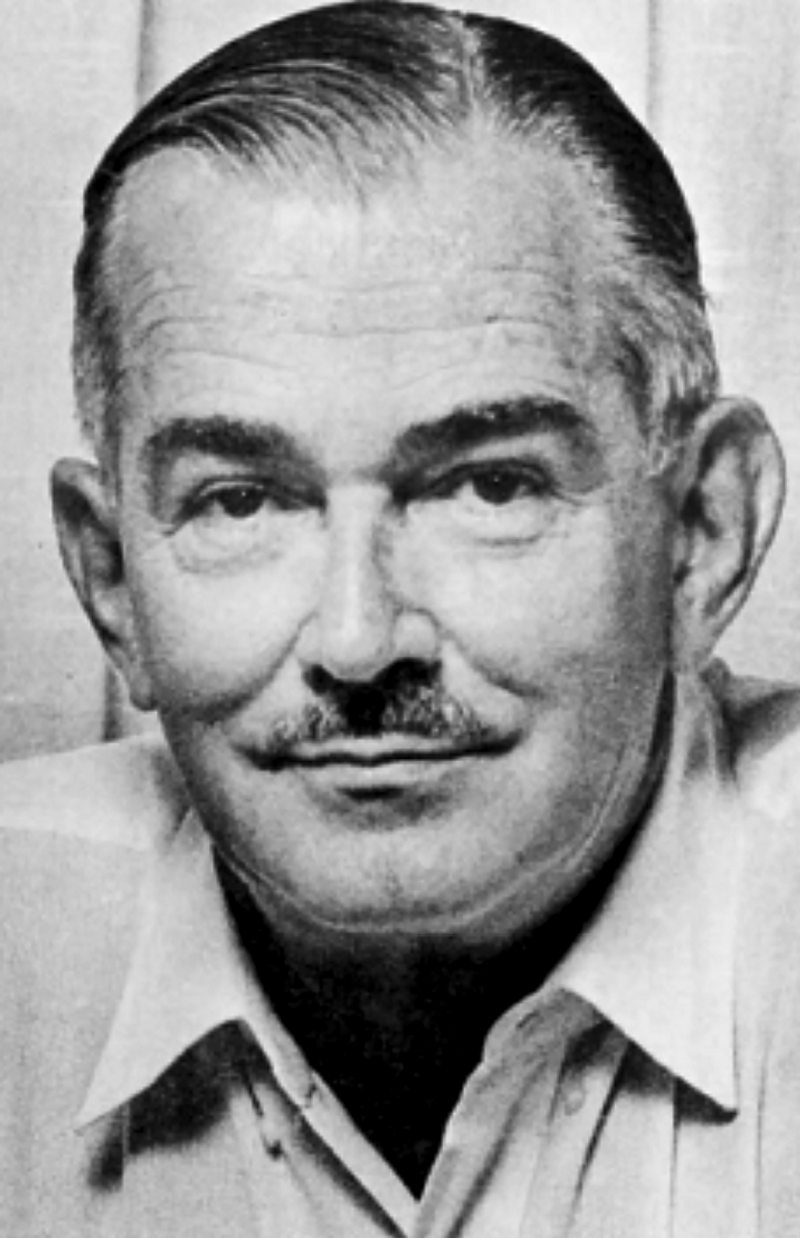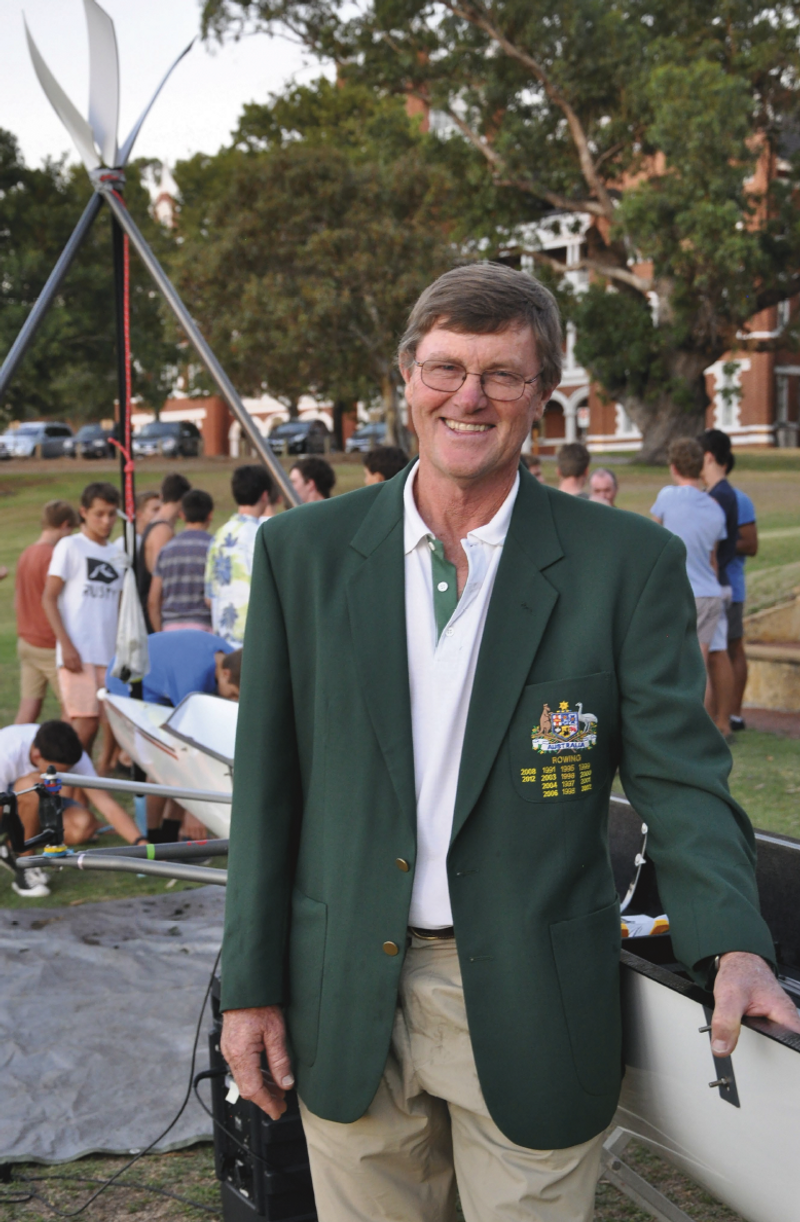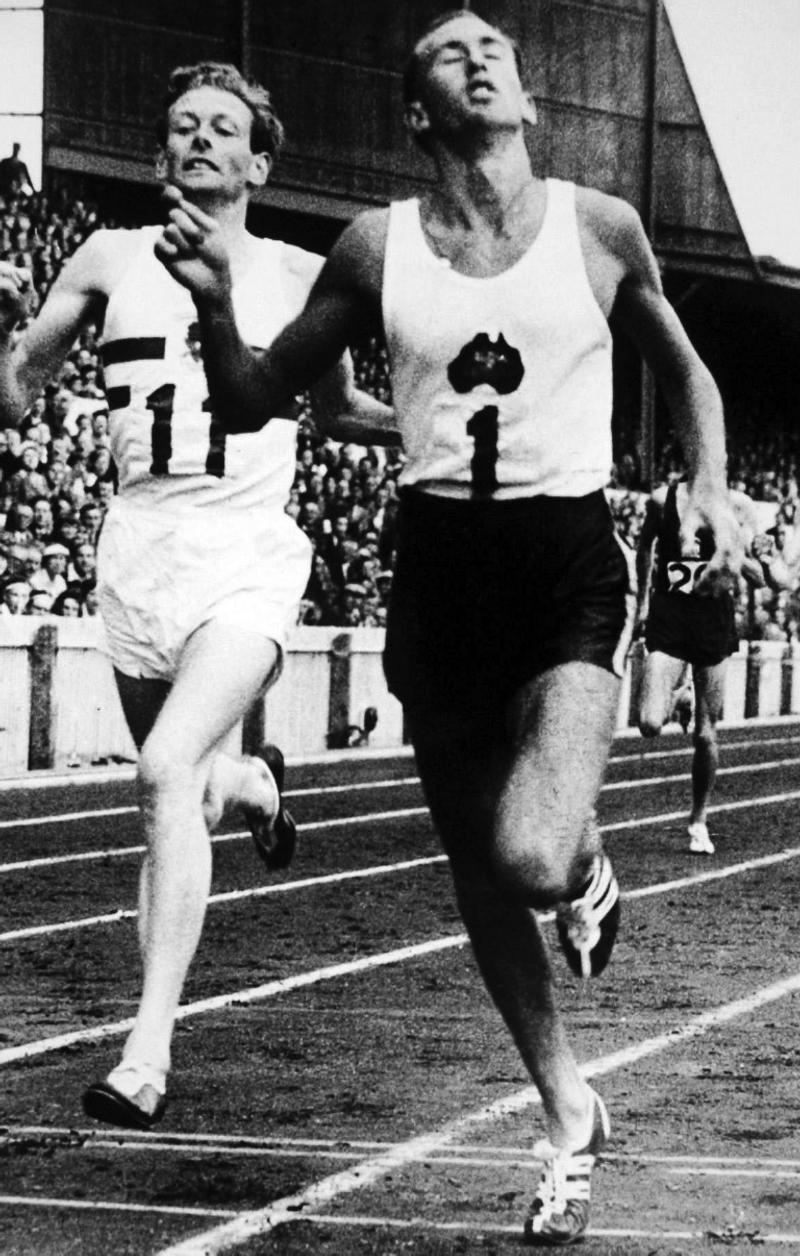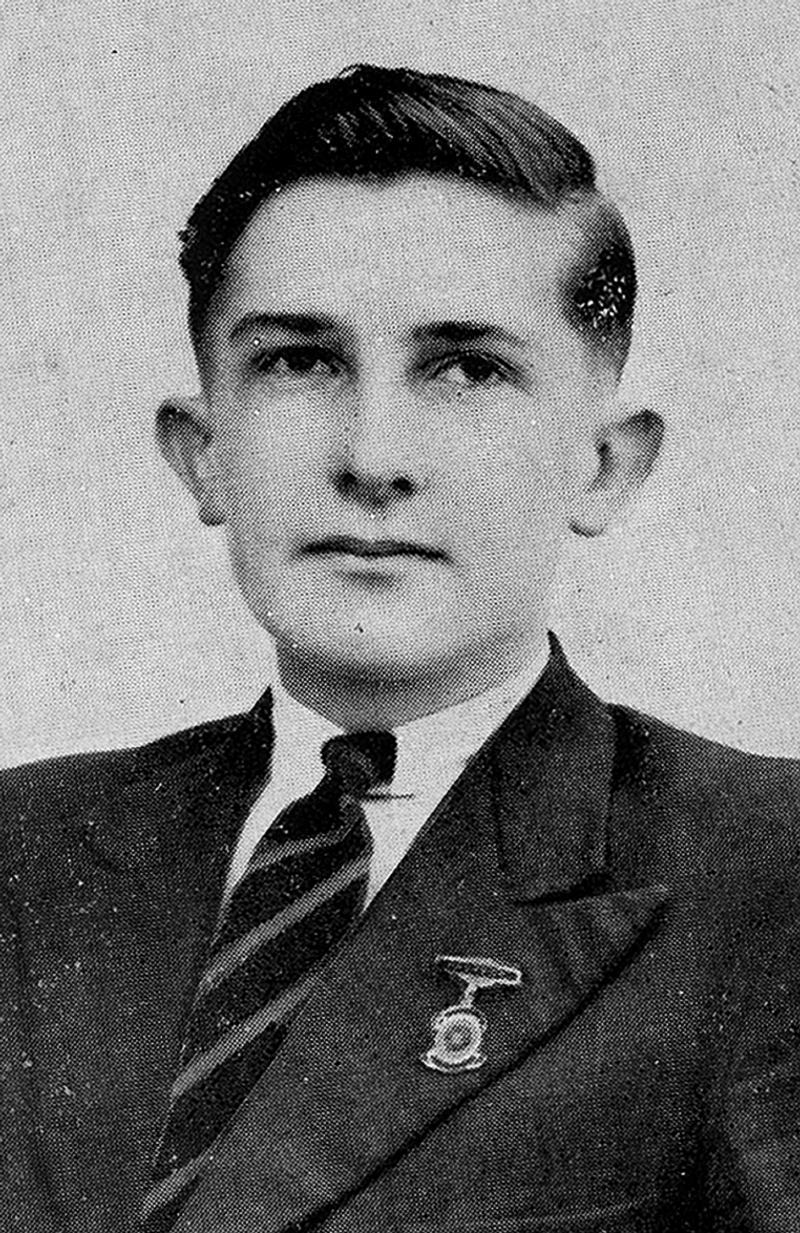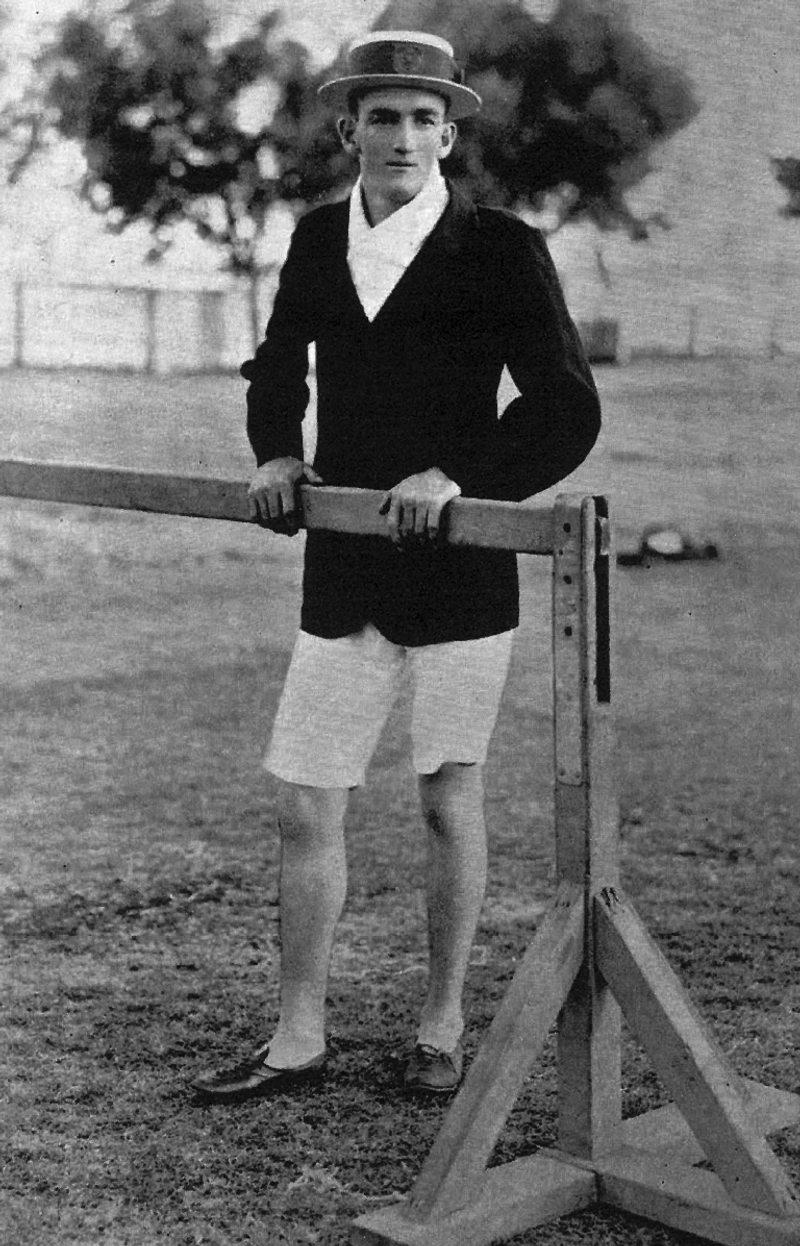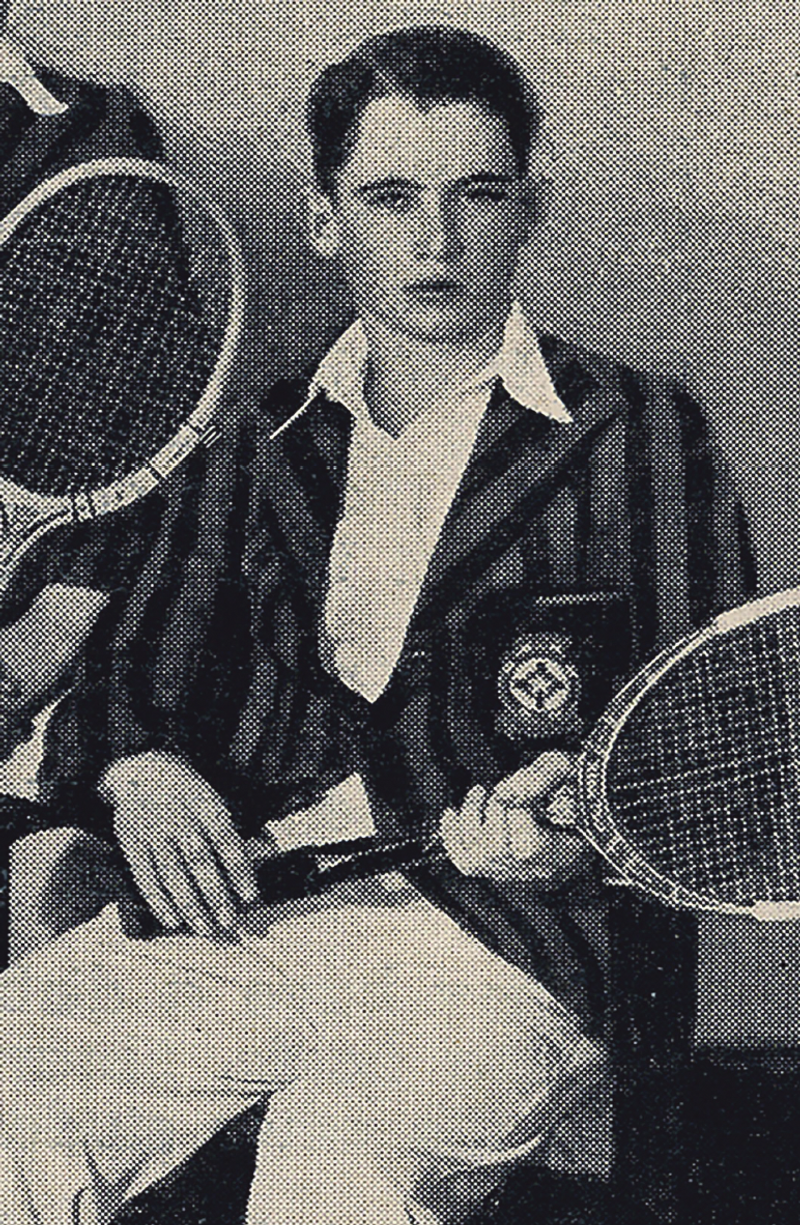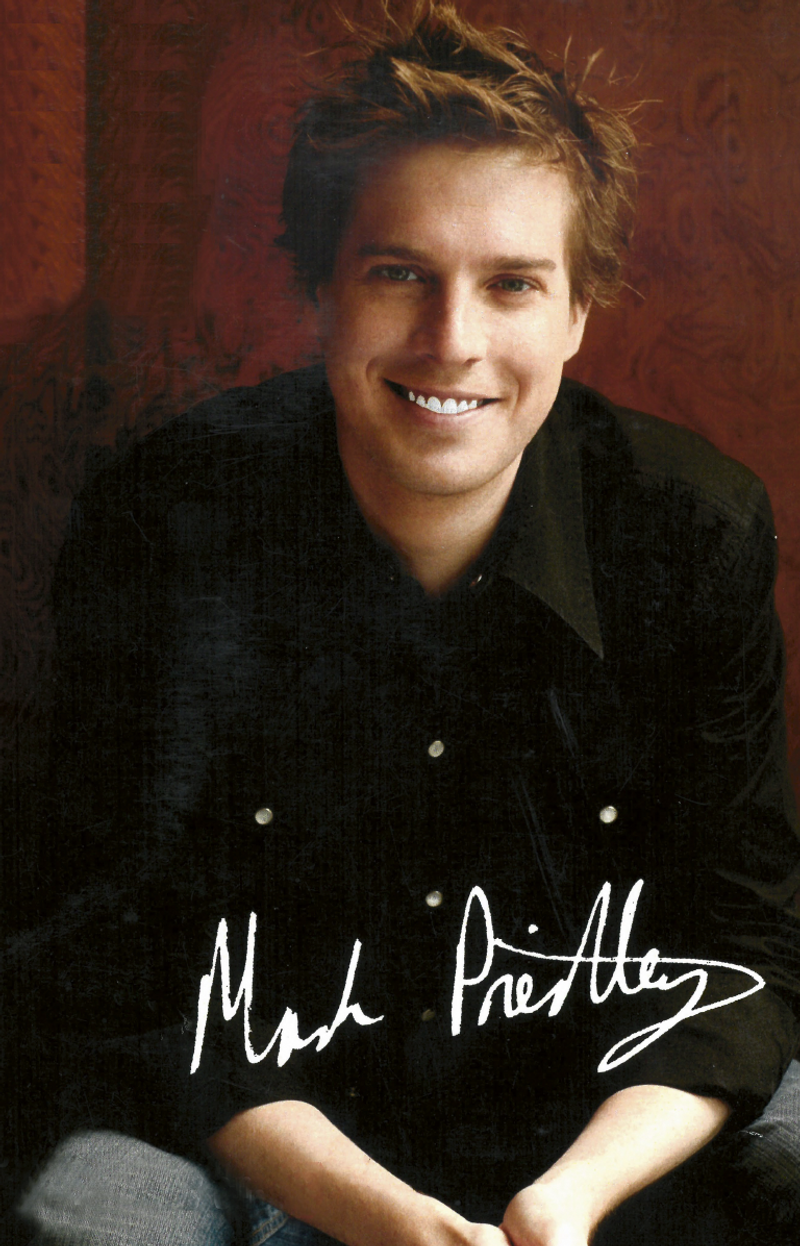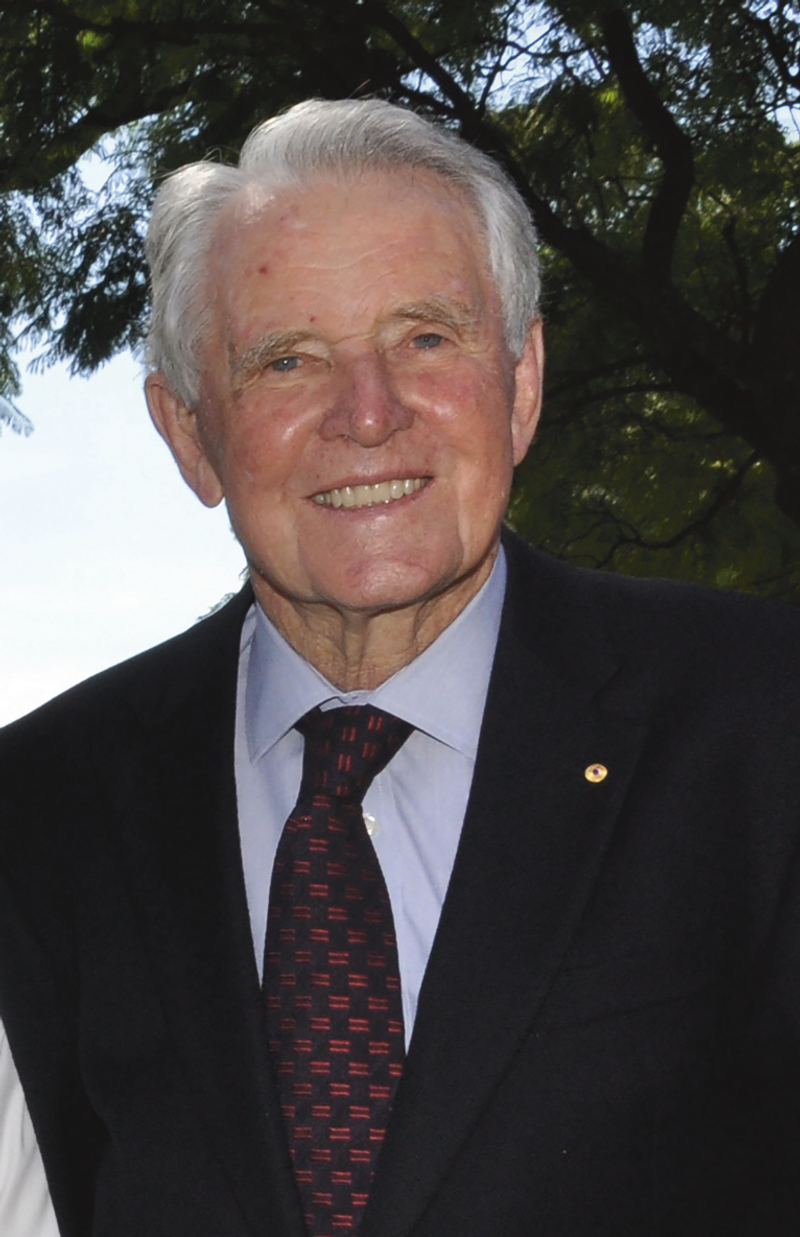Contact
David Maxwell Fenbury
Class of 1932
David Fenbury was born in Subiaco the third child of David Fienberg and who changed his name by deed poll to Fenbury. Young David edited the Pelican student publication at UWA and graduated from the university with a BA in 1937. That year he joined the Department of District Services and Native Affairs in the Mandated Territory of New Guinea as a graduate cadet patrol officer. He passed the requirements for the role of being 21 but under 25, and physically fit. He received 300 pounds per year plus 6 pounds boot allowance. There was no income tax, no refrigeration and no Government leave.
David enlisted in the Australian Imperial Force, or army in November 1942 and was posted to the then administration unit that presided over New Guinea’s government, the ANGAU. David led soldiers and Papua New Guinean police on guerrilla operations and fighting patrols in Japanese-held territory. He was promoted to captain, awarded the Military Cross. He was seconded to the British Colonial Service and spent a year and a half in the Tanganyikan native authority system.
When his AIF appointment ended in 1947 he lectured at the Australian School of Pacific Administration in Sydney for two years. He married Joan Marion Brazier in 1964 and they moved to Port Moresby as he became Senior Native Authorities Officer in the Department of District Services and Native Affairs.
David spent much of the rest of his life playing an active and significant role in the evolution of self-rule in Papua New Guinea. He based himself in Rabaul and set up a model for local government including village courts. He was controversial and found it difficult to accept the attitudes of those who did not share his sense of priorities. He spoke out when he felt the need and was not always mindful of how his sometimes radical views would be received.
He retired as secretary of the Department of Social Development and Home Affairs in 1973 just as many of the things he had campaigned for were coming into being. He retired to Perth, but sadly he died after being hit by a bus in Leederville. There can be little doubt he played a hugely significant role in helping Papua NewGuinea on its way to self-rule.
Nick Garratt AM
Class of 1965
Nick Richard Marshall Garratt was a homegrown best in class rower whose track record and wins with the First Eight at Aquinas translated into one of Australia’s best rowing coaches. He was in the winning crew of 1965 at the Head of the River which after a false start and a delay of one hour was one of the greatest rowing wins in Aquinian history: In a first-ever achievement, every Aquinas crew won that day.
He continued rowing throughout his studies in Business at Curtin after leaving Aquinas College, but never finished as demand for his coaching skills in rowing proved a distraction too far. After coaching for Aquinas College and Hale, he stroked the WA King’s Cup crew for three straight years and then eventually coached full time. The journey to becoming world-class took many twists and turns. One occurred while working in Sydney at the sports sponsorship division of TAA, the Australian airline. He encountered a group of youngsters playing on the street who seemed aimless and needing direction. Typical of the man, he persuaded them to take up rowing and coached them in his own time while holding down a busy job. The success of this group and the club led to an offer of a coaching position in WA.
The list of achievements he has as a coach are too numerous to list but worthy of mention is the 1996 World Junior Rowing Championships. Garratt’s crews made great strides: with Old Aquinian Stuart Reside winning the first-ever gold for Australia in the Men’s Single Scull; Old Aquinian Jonathan Fievez and Tim Perkinsin another inaugural win in the Men’s Double Sculling event. The following year he helped Amber Bradley take gold in the Women’s Single Scull.
Nick coached over thirty national team crews including five Australian crews in four successive Olympic Games, starting with Sydney in 2000. In the 2016 Australia Day Honours list he was awarded an AM for Service to Olympic Rowing. In 2012 Nick was asked by Rowing Australia to coach the Women’s VIII to try to qualify for the last spot in the London Olympics. Against all the odds the young crew won the qualification race, and after just six weeks together, made the Olympic Final. They came sixth against far more experienced crews, some of whom, like the USA team had been together undefeated for six years, and the Romanians, who had medalled every Olympics since 1980. Nick’s crews have won over 50 Australian National Championships, and he has coached more than 30 Olympians.
When the phone rang to ask him to take on the High-Performance Program with the ACT Academy of Sports Rowing Program in Canberra it was in recognition of an already illustrious career as a coach. On leaving Mosman to take on the role of head coach of Rowing ACT much tribute was paid to him for doing what he does best: recognising and inspiring young talent: “For Nick, it is quite simple: good character and sound values are worthwhile aims in their own right, but they also translate into superior athletic performance.”
Looking back before he passed away in 2019 Nick paid tribute to Brother Neil (“Slick”) Wilson who was “so charismatic and just grabbed a bunch of us and enthused us with the art of rowing”. A generation of young rowers would say exactly the same of Nick.
Herb Elliott AC MBE
Class of 1955
Herb Elliott is arguably one of the greatest Australian athletes to come through Aquinas. The same year he was Head Prefect (1955) he broke the Australia Junior 880 yard record up against boys two years his senior. It was a taste of things to come and he went on to dominate middle distance running in Australia and the world from 1957 to 1961. During this period, he set the world record for the mile and then the 1500 metres. Herb won gold for Australia in the 1960 Rome Olympics, bettering his own world record. He never lost 1500 metres or a mile race over this period.
Herb’s journey to greatness began on the oval at Aquinas College, as he said: “I’d been brought up a Catholic at Aquinas College in Perth and you’re constantly confronted by this idea of being a better person. That appealed to me. My motivation was very pure. I wanted to be a better human being. That was my number one thing.” On leaving Aquinas College, Coach Percy Cerutty trained him solidly at Portsea near Melbourne and ingrained in him the need to push through “the lactic acid stage” saying: “it’s only pain”!
Herb was not just an outstanding sportsman; he was also a born leader and was praised for the way he led the Athletics team and the College prefects of 1955. On leaving Aquinas, he studied at Cambridge University, was married and had his first child in quick succession. He secured his first role at Shell and went on to take up several big non-executive roles in his business life.
His very strong moral compass has been a dominant driver throughout his life. Herb once returned a clock to the French Embassy in protest of French nuclear testing in the Australian desert. In August 1962, it brought him controversy again when he refused a $250,000 carrot to joining UN publicist-promoter Leo Leavitt’s offer to turn professional. Looking back his big takeaway from an outstanding athletic career is “If you were going to grow, your motivation had to be more than just winning or getting money.”
The Hon. Peter Durack QC
Class of 1942
From the playing fields of Aquinas to becoming the “father of the Australian Senate”, Peter Durack’s power of speech was just one of his many talents which helped him get there. The other was the ability to apply himself to his studies and discovering the importance of leadership while at Aquinas College. He was the son of a Kimberley pioneering family and was quietly successful while at school. As a Prefect, he distinguished himself with distinctions in English, Latin, French, History, Maths A and Physics.
After Aquinas, he chose to read Law, but it was merely a stepping-stone to his big love which was politics. Along the way, he topped his year in 1945 at UWA and came second the following year. However, the mere achievement was not enough forPeter. He found he was a natural at setting things up and presiding over them. He was President of the National Union of Students and the Guild of Undergraduates while at UWA. He was a founder of the Liberal Club in 1945, President the following year and represented the University’s Debating Club for the following two years.
He was successfully selected as a Rhodes Scholar in 1949, read Law at Magdalen, while at Oxford before being called to the Bar. His real claim to fame was still ahead of him as an Australian politician (1970-1993) for the Liberal Party, rising to Attorney General. He served in Malcolm Fraser’s government from 1977-1983 and was famously one of the longest-serving politicians ever to grace the House.
Peter chose Carmel McLure as his researcher and later private secretary who became the first woman to serve as President of the Court of Appeal in WA. She remembers a man of complete integrity who was unusually apolitical, who worked effectively across party lines for longer than most in Parliament. She never saw him lose his temper even under ferocious pressure from the other side of the House.
When he passed away at the age of 81 in 2008, fellow Aquinian Sir Fred Chaney said: “He was one of the finest politicians I ever knew. I think Peter Durack brought to politics a deep commitment to public service”. Malcolm Fraser recalled his great integrity and intellect and said: “I don’t recall him ever saying an unkind word about another politician or anyone else for that matter”.
Derwas Cumming
Class of 1910
Derwas (or Dave, as he liked to be called) Cumming was born in Millicent in South Australia, the second of five children. He moved back to Perth where his father was born to run his mother’s farm, Yalkin in Doodlakline more than 200km east. Derwas was an outstanding athlete. He captained the College Cricket Club in 1909 ing year was named Champion Athlete at the combined athletics carnival of the Public Schools’ Association. He won the 100yd race, 220yd race, 440yd race, 120yd hurdles, high jump and long jump. Dave played football professionally at the age of 15 in the WAFL. He was so impressive on the field that newspaper reports written in 1941, long after he’d fallen in battle, cited him as WA’s best ever half-forward. He excelled on the sports field and was widely liked by all who knew him at school.
In 1911, Dave moved to Melbourne to study at Trinity College at the University of Melbourne and played two seasons for the University Football Club in the VFL. On returning to Perth in 1914, he enlisted in the Australian Imperial Force and played one last WAFL season.
Departing on the transport ship Medic, Dave was listed as a driver with the rank of private for the 1st Divisional Ammunition Column. After spending some time in Egypt he transferred to the 16th Battalion in October 1915 where he served at Gallipoli and on the Western Front. He was promoted to corporal and then to sergeant in November and December respectively of that year.
Dave was wounded in his arm as he wrote to his mother in action at the Battle of Pozières. He recovered in the UK and was promoted to lieutenant before returning to France. In 1917 he was promoted to captain and two months later he was awarded the Military Cross for Conspicuous Gallantry and Devotion to Duty. He received the Bar to the Military Cross the following year. It was said of him at the time: “he handled two companies with great ability and was greatly responsible for the final success”. He was also recommended for the Distinguished Service Order but did not receive the award, possibly due to his rank at the time.
Tragically he met his end in machine-gun fire on the field at the Second Battle of Villers-Bretonneux at Monument Wood at the young age of 26. His obituary in The West Australian noted that “this college has a heavy record of deaths among its most distinguished old boys” and named Lindsay Glowrey, Pinder Boor and Herbert Appel amongst his peers.
The Hon. Maurice Cullity QC
Class of 1953
Born into a strong Catholic Irish family tradition Maurice made the most of his time at Aquinas and the spirit of the Brothers’ teaching has stayed with him throughout his stellar career in Law. In his last two years at Aquinas College, he completed seven subjects gaining five distinctions. Maurice was particularly talented at cricket and football. He captained the First XI and was a rover in the winning First XVIII. In a match against Hale in 1953, “Not out for 85” got him a mention in the 1953 Annual! He won the Inters Mile and was Head Prefect and Captain of the School in 1953. Modesty typical of a great Aquinian prevents him from crowing about his academic successes, especially as he like so many others had a second go before finishing on a high in his final year. Having put in the hard yards at Aquinas College, his success at university surprised no one and he went on to get 19 out of 20 subject distinctions while studying Law at the University of Western Australia. In fact, Maurice won every single prize for which he was eligible. As the school’s sixth Rhodes’ Scholar Maurice had a stunning combination of sporting and academic achievements behind him by the time he went to Oxford in 1957.
On returning from Oxford, where he also lectured in Law, Maurice taught in Melbourne. During a sabbatical at the University of Pennsylvania in 1968, he was invited to teach in Ontario, Canada, by the then Dean of the Osgoode Hall Law School. He and his family moved to Ontario and, in spite of the cold winters, settled happily.
In a smooth upward trajectory, Maurice began practice as a barrister and solicitor in Ontario; he was appointed Queen’s Counsel in 1980, and then successively to the Ontario Court of Justice and in 1999 to the Superior Court of Justice. Eight years later the Ontario Bar Association recognised Maurice’s contribution to Law in Ontario by awarding him its 2017 Award of Excellence in Trusts and Estates Law.
Looking back to his time at Aquinas College Maurice happily recalls he had the best education, a wonderful time on and off the fields. In particular, he remembers the influence Brother Murphy had on his life. He recalls that the school then had something of a British independent school’s atmosphere and culture in which everyone strived to be the best they could be. Faith was “front and central” in his education and sport was key to the climate in which learning took place. Even the Brothers would keep a watchful eye on the classroom clock at the time came up to 3 pm and look forward to their daily release onto the playing fields of Aquinas.
Today Maurice has nothing but the highest regard for the Brothers, the school as it was and the preparation it gave him for a career that took him across the world.
Dr Tom Cullity
Class of 1941
Thomas was a great all-rounder from an Aquinas family dynasty. Emerging from Aquinas as Dux of the College in 1941 he went on to distinguish himself in two disciplines that could not be more different: cardiology and winemaking.
Before leaving Aquinas College, he was a force to be reckoned with in whatever he turned his hand to. In his final year, Tom headed his year in English, Latin, French, Mathematics B and Chemistry consequently winning the Old Boys’ Memorial Prize for 1941. He was Vice-Captain of the Cricket team and won an Honour Cap in Tennis. He was a Cadet-Lieutenant and won the Perrott Cup as Best and Fairest player in Football. He studied at the University of Western Australia for one year before moving to Adelaide where he graduated in Medicine in 1947. After many years’ practising as a cardiologist in Australia and the UK, Tom took it upon himself to branch out on a totally different path.
In the mid-1960s Tom started trial planting vines in the Margaret River region after a report likening the area to France’s Bordeaux caught his eye. He became the pioneer of the Margaret River region and the WA wine industry. He planted Cabernet Sauvignon, Shiraz, Malbec and Riesling in what he named the Vasse Felix Vineyard.
He followed his dream: “to make the best wine possible” and kept going in the face of all opposition to “the mad Catholic doctor from Perth”. Tom faced down challenges such as disease and hard climatic conditions to establish what has become one of Australia’s best international exports and well knowndestinations for first-class wine and food.
Mark Priestley
Class of 1993
Mark stood out from the crowd at Aquinas because he was a great performer. He had a rare comic gift and regularly had people in stitches through his observations of the simplest things. His performance in A Funny Thing Happened on the Way to the Forum will be remembered by many for years to come. When he left Aquinas College he took the Prize for Outstanding Achievement in Cultural Activities with him. He was offered a place at NIDA in 1996 and graduated in 1999.
Unlike many actors starting out, Mark was successful early and regularly. He played a semi-regular role in The Secret Life of Us and had roles in two ABC miniseries Changi and The Farm as well as Blue Heelers. But it was his part as Dan Goldman in All Saints he will be best remembered for by the Australian public. He worked with the Bell Shakespeare Company and the Sydney Theatre Company. He played Silvio in The Servant of Two Masters and performed in the Sydney Theatre Company’s production of Major Barbara in 2003.
Mark Priestley was a unique and creative student. A quick thinker with wit and dramatic flair. He was a successful and accomplished actor, and those who knew him well at school and on-screen remember him as an outstanding individual. Juliana Hammond his drama teacher at Aquinas remembers him as: “warm, intelligent and a huge talent when he was just 17 years of age.”
Actor John Waters, who worked alongside Mark on All Saints said: “Mark the actor was intuitive, and graced every scene in which he appeared with a touch of whimsical genius that only he could apply.”
Mark struggled with his mental health and hid behind a mask of expertly played comedy. Everyone loved being with him because he made people feel special - a rare gift. Mark’s legacy continues at Aquinas College with an award named in his honour which is bestowed on a student each year in recognition of his dedication to the Arts at the College.
Denis Cullity
Class of 1945
When Denis’ father Thomas Cullity, son of Irish immigrants, began Cullity Woodworks in South Australia he planted the seeds of a family business, though he could never have envisioned what it would become or the mixed fortunes yet to come. Wood and the timber industry became a part of the fabric of Western Australia and Cullity family histories - and continue to this day.
At school, Denis did well. After all, he was a member of one of its biggest dynasties. He finished as Head Prefect and Captain of the College in the Class of 1945. He was proficient in the cadets as a Lieutenant and rowed, was in the shooting team and took the Science prize as well as second place. In his address at the end of the year, the Headmaster commended him for being “well worthy of his important office”.
Denis joined the family business and presided over the company’s expansion as chairman. When the company suffered a downturn at the turn of the 21st century Denis battened down the hatches and weathered the storm. The company Wesfi and Cullity’s became part of building products company the Laminex Group. However, Denis continued his close relationship to the timber industry as a major partner in Wesbeam and became known as the state’s “timber tycoon”. In October 1951 Denis married Sir Thomas Meagher’s daughter, Ann at St Mary’s Cathedral.
Denis took on the role of executive chairman of Wesfi, then listed, from 1971 to 1996 and chair from 1999 to 2001. He was a founding chairman of Wesbeam from 2001 to 2013 and remains its major shareholder. Denis developed five major softwood manufacturing facilities in WA.
He was one of the co-founders of Swan Television in 1962 which was bought soon after and became the western arm of Channel Nine. Denis was also a director of Bankwest (1988-95) and was named Ernst and Young Champion Entrepreneur in 2006.
